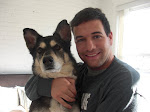- How do the men determine which bodies are white and which are black? What do they do with the corpses once they decide their race? Do you think this is accurate?
- The Jim Crow Laws separated black and white in restaurants, rest rooms, transportation, etc. What do you think Tea Cake is saying about God in the following quotation: "'They's mighty particular how dese dead folks goes tuh judgement,' Tea Cake observed to the man working next to him. 'Look lak dey think God don't know nothin' about de Jim Crow Law.'"
- Why does Tea Cake decide to go where "de white folks know me"?
- What indications are there in the story that both Tea Cake and Janie know Tea Cake has rabies before they send for a doctor?
- Find a specific passage in this chapter showing that Janie prays for God's help, but also accepts that the decision over Tea Cake's fate may have already been made.
- How are the circumstances of Tea Cake's death an example of irony? How can Tea Cake's death be considered a "blessing" for him?
- Why do you think Janie would have preferred having white woman on the jury instead of white men?
- How do the black people at the trial demonstrate bigotry toward women?
- Why is it significant that Janie attends Tea Cake's funeral in her overalls instead of the expensive clothes she wears at Joe Stark's funeral?
- What is Janie telling Phoeby about love in the following quotation: "Love is lak de sea. It's us movin' thing, but still and all, it takes its shape from de shore it meets, and it's different with every shore."
- Find the specific passage stating the two things Janie says people must do for themselves.
- In the following passage, indicate what the horizon symbolizes and what does the passage suggest about Janie's plan to live the rest of her life: "She pulled in her horizon like a great fish net. Pulled it from around the waist of the world and draped it over her shoulder. So much of like in its meshes! She called in her soul to come and see."
The Novel as a Whole:
- Has Janie changed as a character? Why or why not? Use detail to support your answer.
- Explain Hurston's use of race and racism in the novel. How does she show this theme through characters and events. What do you think she is trying to say about this theme?
- Hurston also uses Janie to demonstrate one's search for identity and quest to find one's self and to have a voice. Has she successfully done this? why or why not?
